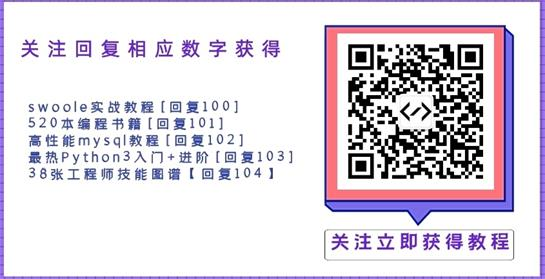自动更新的软件的目的在于让客户不在为了寻找最新软件花费时间。也不用去到开发商的网站上查找。客户端的软件自动会在程序启动前查找服务器上最新的版本。 和自己当前软件的版本比较,如果服务器的是最新版本。客户端则进行自动下载、解压、安装。当然了下载是要有网络的,并且用户可以根据提示去完成操作。再也 不用为找不到最新版本的软件而头疼。下面是我的大体思路,已经得到了实现:
1、 写一个webservice,提供一个获取服务器xml中版本的数据的方法。|
3、 然后客户端自动下载网络上的zip压缩包到本机的指定位置,进行自动解压缩到安装的目录进行覆盖。解压缩完毕之后,用进程打开所解压过的exe文件进行软件安装。同时关闭客户端软件所在的进程。
4、注意:升级程序和应用程序都是单独的,应用程序在使用时不能对本身进行升级(覆盖会失败)。
具体代码如下:
第一部分 应用程序如口Program:
1、 写一个webservice,提供一个获取服务器xml中版本的数据的方法。|
<?xml version="1.0" encoding="utf-8" ?> <Content> <Project id="程序名称" Edition="1.0"> </Project> </Content>2、 在WinForm应用程序启动的时候,首先访问webservice获取服务器的xml中的版本号,然后获取客户端的xml中的版本号。将两个版本号比较,若服务器中的版本号大,则提示提示可以在线更新应用程序。
3、 然后客户端自动下载网络上的zip压缩包到本机的指定位置,进行自动解压缩到安装的目录进行覆盖。解压缩完毕之后,用进程打开所解压过的exe文件进行软件安装。同时关闭客户端软件所在的进程。
4、注意:升级程序和应用程序都是单独的,应用程序在使用时不能对本身进行升级(覆盖会失败)。
具体代码如下:
第一部分 应用程序如口Program:
using System;
using System.Collections.Generic;
using System.Windows.Forms;
using Medicine_ERP;
using DevExpress.XtraEditors;
using System.Xml;
using Anshield_AutoFutures.BaseClase;
namespace Anshield_AutoFutures
{
static class Program
{
private static void LoadMath()
{
//服务器上的版本号
string NewEdition = "1.0";
//应用程序中的版本号
string OldEdition = "1.0";
try
{
//服务器上的版本号
NewEdition = webserverClase.getCopyRightCode();
//获取系统中xml里面存储的版本号
String fileName = Application.StartupPath + "\\XMLEdition.xml";
XmlDocument xmlDoc = new XmlDocument();
xmlDoc.Load(fileName);
XmlNode xn = xmlDoc.SelectSingleNode("Content");
XmlNodeList xnl = xn.ChildNodes;
foreach (XmlNode xnf in xnl)
{
XmlElement xe = (XmlElement)xnf;
if (xe.GetAttribute("id") == "jigou_plz")
{
OldEdition = xe.GetAttribute("Edition");//动态数组
}
break;
}
double newE = double.Parse(NewEdition);
double oldE = double.Parse(OldEdition);
//比较两个版本号,判断应用程序是否要更新
if (newE > oldE)
{
//更新程序¨
DialogResult dr = XtraMessageBox.Show("发现新的版本是否要更新该软件", "平浪舟现货程序化交易--更新提示", MessageBoxButtons.OKCancel, MessageBoxIcon.Information);
if (dr == DialogResult.OK)
{
//打开下载窗口
// Application.Run(new DownUpdate());
//启动安装程序
System.Diagnostics.Process.Start(Application.StartupPath + @"\Upgrade_Form.exe");
Application.Exit();
}
else
{
//若用户取消,打开初始界面
anshield_Login login = new anshield_Login();
if (login.ShowDialog() == DialogResult.OK)
{
Application.Run(new Main_AutoFutures());
}
}
}
else
{
//若服务器版本低于或相等客户端,打开初始界面
anshield_Login login = new anshield_Login();
if (login.ShowDialog() == DialogResult.OK)
{
Application.Run(new Main_AutoFutures());
}
}
}
catch
{
XtraMessageBox.Show("网络链接失败!", "提示", MessageBoxButtons.OK, MessageBoxIcon.Error);
}
}
/// <summary>
/// 应用程序的主入口点。
/// </summary>
[STAThread]
static void Main()
{
//保证同时只有一个客户端在运行
System.Threading.Mutex mutexMyapplication = new System.Threading.Mutex(false, "jigou_plz.exe");
if (!mutexMyapplication.WaitOne(100, false))
{
XtraMessageBox.Show("程序" + Application.ProductName + "已经在运行!", "警告", MessageBoxButtons.OK, MessageBoxIcon.Warning);
return;
}
else
{
Application.EnableVisualStyles();
Application.SetCompatibleTextRenderingDefault(false);
//汉化
hugengyong hu = new hugengyong();
DevExpress.UserSkins.OfficeSkins.Register();
DevExpress.Skins.SkinManager.EnableFormSkins();
DevExpress.UserSkins.BonusSkins.Register();
LoadMath();
}
}
}
}
第二部分:升级程序代码如下:
//debug目录,用于存放压缩文件
string path = Application.StartupPath;
private void btnDown_Click(object sender, EventArgs e)
{
string zipFile = path + @"\jigou_plz.zip";
//关闭原有的应用程序
killProess();
btnDown.Enabled = false;
button2.Enabled = false;
//自动下载压缩包,并且解压,最后关闭当前进程,进行安装
try
{
//下载自动更新
string downUrl = ConfigurationManager.ConnectionStrings["DownUrl"].ConnectionString.ToString().Trim();
if (!string.IsNullOrEmpty(downUrl))
{
DownloadFile(downUrl, zipFile, progressBar1, label1);
}
else
{
MessageBox.Show("Config中的下载路径配置错误!", "错误", MessageBoxButtons.OK, MessageBoxIcon.Error);
return;
}
}
catch
{
MessageBox.Show("当前没有网络或者文件地址不正确");
return;
}
//解a压1
try
{
//关闭原有的应用程序
killProess();
//unCompressRAR(path, path, "setup.rar", true);
BaseClase.Zip.UnZip(zipFile, path, "", true,true);
}
catch (Exception ex)
{
MessageBox.Show(ex.Message);
return;
}
if (MessageBox.Show("升级完成!,请重新登陆!", "提示", MessageBoxButtons.OK, MessageBoxIcon.Information) == DialogResult.OK)
{
FileInfo file = new FileInfo(path + @"\Anshield_AutoFutures.exe");//文件地址
if (file.Exists)
{
Process.Start(path + @"\Anshield_AutoFutures.exe");
}
Application.Exit();
}
}
/// <summary>
/// c#.net 下载文件
/// </summary>
/// <param name="URL">下载文件地址</param>
///
/// <param name="Filename">下载后的存放地址</param>
/// <param name="Prog">用于显示的进度条</param>
///
public void DownloadFile(string URL, string filename, System.Windows.Forms.ProgressBar prog, System.Windows.Forms.Label label1)
{
float percent = 0;
try
{
System.Net.HttpWebRequest Myrq = (System.Net.HttpWebRequest)System.Net.HttpWebRequest.Create(URL);
System.Net.HttpWebResponse myrp = (System.Net.HttpWebResponse)Myrq.GetResponse();
long totalBytes = myrp.ContentLength;
if (prog != null)
{
prog.Maximum = (int)totalBytes;
}
System.IO.Stream st = myrp.GetResponseStream();
System.IO.Stream so = new System.IO.FileStream(filename, System.IO.FileMode.Create);
long totalDownloadedByte = 0;
byte[] by = new byte[1024];
int osize = st.Read(by, 0, (int)by.Length);
while (osize > 0)
{
totalDownloadedByte = osize + totalDownloadedByte;
System.Windows.Forms.Application.DoEvents();
so.Write(by, 0, osize);
if (prog != null)
{
prog.Value = (int)totalDownloadedByte;
}
osize = st.Read(by, 0, (int)by.Length);
percent = (float)totalDownloadedByte / (float)totalBytes * 100;
label1.Text = "下载进度" + percent.ToString() + "%";
System.Windows.Forms.Application.DoEvents(); //必须加注这句代码,否则label1将因为循环执行太快而来不及显示信息
}
label1.Text = "下载完成。安装中... ...";
so.Flush();//将缓冲区内在写入到基础流中
st.Flush();//将缓冲区内在写入到基础流中
so.Close();
st.Close();
}
catch (System.Exception)
{
throw;
}
}
/// <summary>
/// 关闭原有的应用程序
/// </summary>
private void killProess()
{
this.label1.Text = "正在关闭程序....";
System.Diagnostics.Process[] proc = System.Diagnostics.Process.GetProcessesByName("Anshield_AutoFutures");
//关闭原有应用程序的所有进程
foreach (System.Diagnostics.Process pro in proc)
{
pro.Kill();
}
}
zip压缩文件解压方法类
using System;
using System.Collections.Generic;
using System.Text;
using System.IO;
using System.IO.Compression;
using ICSharpCode.SharpZipLib.Zip;
namespace Upgrade_Form.BaseClase
{
class Zip
{
/// <summary>
/// 解压缩一个 zip 文件。
/// </summary>
/// <param name="zipedFile">zip文件路径</param>
/// <param name="strDirectory">解压路径</param>
/// <param name="password">zip文件的密码</param>
/// <param name="overWrite">是否覆盖已存在的文件。</param>
/// <param name="delteFile">解压后是否删除文件</param>
public static void UnZip(string zipedFile, string strDirectory, string password, bool overWrite,bool delteFile)
{
//路径不存在则创建
if (Directory.Exists(strDirectory) == false)
{
Directory.CreateDirectory(strDirectory);
}
if (strDirectory == "")
strDirectory = Directory.GetCurrentDirectory();
if (!strDirectory.EndsWith("\\"))
strDirectory = strDirectory + "\\";
using (ZipInputStream s = new ZipInputStream(File.OpenRead(zipedFile)))
{
s.Password = password;
ZipEntry theEntry;
while ((theEntry = s.GetNextEntry()) != null)
{
string directoryName = "";
string pathToZip = "";
pathToZip = theEntry.Name;
if (pathToZip != "")
directoryName = Path.GetDirectoryName(pathToZip) + "\\";
string fileName = Path.GetFileName(pathToZip);
Directory.CreateDirectory(strDirectory + directoryName);
if (fileName != "")
{
if ((File.Exists(strDirectory + directoryName + fileName) && overWrite) || (!File.Exists(strDirectory + directoryName + fileName)))
{
using (FileStream streamWriter = File.Create(strDirectory + directoryName + fileName))
{
int size = 2048;
byte[] data = new byte[2048];
while (true)
{
size = s.Read(data, 0, data.Length);
if (size > 0)
streamWriter.Write(data, 0, size);
else
break;
}
streamWriter.Close();
}
}
}
}
s.Close();
}
if (delteFile == true)
{
File.Delete(zipedFile);
}
}
}
}
